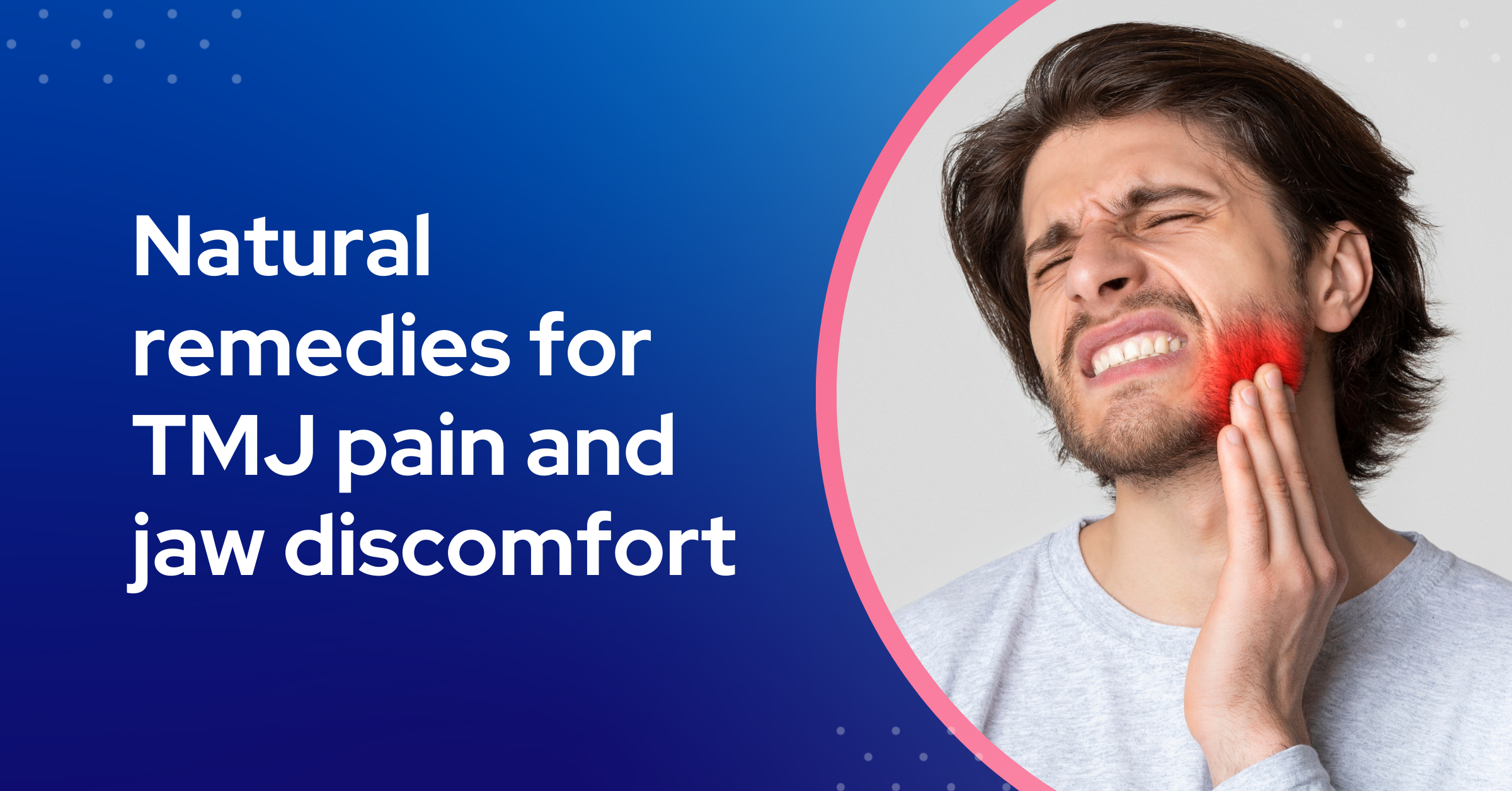The temporomandibular joint (TMJ) is the hinge that connects your jaw to your skull. TMJ disorders (TMD) encompass a range of conditions causing pain, discomfort, and even limited movement in the jaw joint and surrounding muscles.
What Causes TMJ Pain?
The exact cause of TMJ pain can be difficult to pinpoint, but factors like teeth grinding (bruxism), stress, misalignment of the jaw, and injuries can all contribute.
Symptoms of TMJ Pain:
- Pain and tenderness in the jaw
- Clicking or popping sounds in the jaw joint
- Difficulty opening or closing the mouth fully
- Facial pain
- Headaches
- Earaches
Natural Remedies for TMJ Relief:
- Heat and Cold Therapy: Applying a warm compress (like a moist heating pad) can help relax tight muscles, while a cold compress (like an ice pack wrapped in a towel) can reduce inflammation and pain. Alternate between heat and cold for 15-minute intervals.
- Tongue Training: Tongue posture and improper oral rest posture is increasingly being recognized as a potential factor in TMJ dysfunction. Tools like Spot Pal can help train the tongue to rest in a proper position, potentially reducing pressure on the jaw joint and improving TMJ function.
- Relaxation Techniques: Chronic stress can exacerbate TMJ pain. Techniques like meditation, deep breathing exercises, and gentle jaw massages can help manage stress and promote relaxation in the jaw muscles.
- Soft Diet: Hard, chewy foods can put extra strain on the jaw joint. Opt for a soft diet with easily chewable foods like soups, smoothies, yogurt, and cooked vegetables. This will help reduce stress on the joint and promote healing.
- Strengthening Jaw Muscles: Weak jaw muscles can contribute to TMJ dysfunction. Gentle jaw exercises can help strengthen and stabilize the joint.
- Maintain Good Posture: Poor posture can strain the jaw muscles. Practice good posture while sitting, standing, and sleeping to reduce tension in the jaw joint.
- Limit Chewing Gum: Chewing gum can overwork the jaw muscles and exacerbate TMJ pain.
- Consider Supplements: Talk to your doctor about supplements like magnesium, fish oil, and curcumin, which may have anti-inflammatory properties and potentially aid in pain relief.
While these natural remedies can provide relief, it's important to consult with a therapist, dentist or doctor if you experience persistent pain, limited jaw mobility, or worsening symptoms. Early diagnosis and treatment can help prevent further complications.

Share:
10 Practical Tips For Snorers and Their Partners
Unlock Better Sleep: Understanding and Improving Your Oura Score